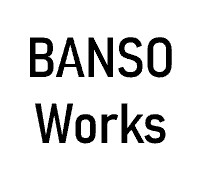How to say "friend" in Japanese? Navigating Friendships in the Japanese Workplace

In a Japanese workplace, the term for "friend" might be slightly different from casual or personal contexts. You might use:
In Japanese, 'friend' is 友人 (yūjin), but in a work setting, referring to someone as 'my work friend' may feel quite awkward to Japanese people. Just as there is the term 'colleague' in English, there are different terms used in Japan to refer to work-related relationships, so please be mindful of this.
What would be the appropriate expressions? Please list three.
Recommended Japanese book
同期 (どうき, dōki):
In Japanese, the term '同期' (dōki) generally refers to employees who joined the company around the same time and are of a similar age. In Japan, where it is common to join a company through mass hiring after graduating from university, there can be hundreds of new employees joining in April who are of similar age, especially in large corporations. These employees call each other '同期' (dōki). Recently, there has been an increase in 'career hires' who join the company through mid-career recruitment. In such cases, if they joined the company at the same time, they may also be called '同期' (dōki), even if there is an age difference of 20 years between them.
同僚 (どうりょう, dōryō):
This means "colleague" or "co-worker" and can imply a friendly relationship among coworkers.同僚 (dōryō) generally refers to colleagues who work in the same workplace. This term does not depend on whether they joined the company at the same time or not, as mentioned above. It is a somewhat formal and professional term
仕事仲間 (しごとなかま, shigoto nakama)
: This translates to "workmate" or "work companion" and conveys a sense of camaraderie within the work environment.仕事仲間 (shigoto nakama) has a meaning very similar to 同僚 (dōryō), but it differs from 同期 (dōki) as it does not imply joining the company at the same time. Essentially, it is the same as 同僚 (dōryō), but it carries a more casual and friendly connotation. The word 仲間 (nakama) suggests a closer relationship, making 仕事仲間 (shigoto nakama) feel more intimate compared to 同僚 (dōryō).
Conlusition
While these terms are not direct translations of "friend," they are commonly used to describe professional relationships that may have a friendly aspect.Depending on which word a Japanese person uses, you might be able to gauge the closeness of their relationship with their workplace members. Pay attention and listen carefully.
Writer and Editor: Lio, Japanese career consultant

Lio is a nationally licensed career consultant in Japan. He holds the Level 1 SEO Certification and is a certified web analyst. Born in Japan, he has lived in four countries, gaining an understanding of various cultures while being well-versed in Japan's unique work culture and language. With 25 years of experience in HR at both Japanese and multinational companies, he leverages his expertise to support individuals seeking to work in Japan




